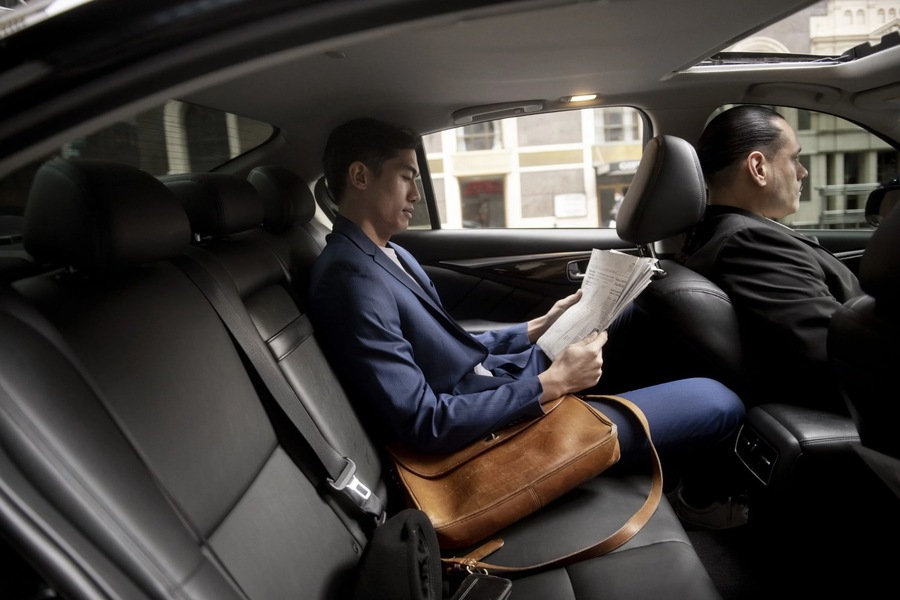The transportation sector in the Middle East has experienced significant transformations over the past decade. With rapid urbanization, increased smartphone penetration, and a growing demand for convenience, ride-sharing and chauffeur services have become vital components of urban mobility. This article delves into the factors contributing to the growth of these services, examines their impact on the region, and explores the future landscape of ride-sharing and chauffeur services in the Middle East.
Technological Advancements Driving Growth
The proliferation of smartphones and high-speed internet has been a cornerstone in the rise of ride-sharing and chauffeur services. Companies like Uber and Careem have capitalized on this digital revolution, providing users with seamless app-based platforms to book rides easily. These platforms use advanced algorithms to match riders with drivers efficiently, optimizing routes and reducing wait times.
Furthermore, innovations in GPS technology and real-time tracking have enhanced the safety and reliability of these services. Users can monitor their ride’s progress, share their location with friends or family, and access detailed information about their driver and vehicle. This transparency has built trust and encouraged more users to adopt ride-sharing services.
Urbanization and Changing Demographics
The Middle East is witnessing rapid urbanization, with cities like Dubai, Riyadh, and Doha expanding at unprecedented rates. This urban growth has increased traffic congestion and a greater need for efficient transportation solutions. Ride-sharing services offer a practical alternative to car ownership, reducing the number of vehicles on the road and alleviating traffic jams.
Additionally, the region’s demographics are shifting, with a young, tech-savvy population driving the demand for modern, convenient transport options. According to the United Nations, the urban population in the Middle East is expected to grow from 60% in 2020 to 70% by 2050. This demographic trend underscores the importance of scalable and flexible transportation solutions like ride-sharing and chauffeur services.
Economic and Environmental Benefits
Ride-sharing and chauffeur services also bring significant economic and environmental benefits. Economically, these services create job opportunities for drivers, contribute to local economies, and reduce the need for personal car ownership, lowering household transportation costs. The World Bank reports that ride-sharing can lessen the need for parking spaces, freeing up valuable urban land for other uses.
Environmentally, ride-sharing promotes carpooling, leading to fewer vehicles on the road and lower emissions. A study by the International Transport Forum found that widespread adoption of ride-sharing could reduce urban CO2 emissions by up to 33%. Additionally, many ride-sharing companies invest in electric and hybrid vehicles, mitigating their environmental impact.

Regulatory Landscape and Challenges
The rapid growth of ride-sharing and chauffeur services has been challenging. Regulatory frameworks in the Middle East have had to evolve to accommodate these new business models. Governments are tasked with balancing innovation with public safety and fairness to traditional taxi services.
In some countries, stringent regulations have been imposed on ride-sharing companies, including licensing requirements, insurance mandates, and driver background checks. These regulations aim to ensure passenger safety and service quality but can also pose barriers to entry for new players in the market.
Moreover, the relationship between ride-sharing companies and traditional taxi services has been contentious. Traditional taxi drivers often view ride-sharing as unfair competition, leading to protests and calls for regulatory action. Policymakers must navigate these tensions to create a level playing field that fosters innovation while protecting existing stakeholders.
The Role of Zofeur and Similar Services
Chauffeur services, such as those offered by Zofeur, cater to a niche market that values personalized, high-quality transportation. Unlike conventional ride-sharing services, chauffeur services provide dedicated drivers who operate the client’s vehicle. This model offers a premium experience, appealing to corporate clients, tourists, and residents seeking convenience and luxury.
Zofeur’s unique pay-per-minute model exemplifies the innovative approaches emerging in this sector. By offering flexible pricing and professional drivers, Zofeur meets the needs of time-conscious consumers in Dubai and beyond. Such services highlight the diversity within the transportation industry, catering to various customer preferences and contributing to the region’s overall growth of ride-sharing and chauffeur services.
Impact on Public Transportation
The rise of ride-sharing and chauffeur services has significant implications for public transportation systems. These services sometimes complement public transit by providing first-mile and last-mile connectivity. For instance, a commuter might use a ride-sharing service to reach a metro station, seamlessly integrating private and public transport modes.
However, there is also concern that ride-sharing might divert users from public transport, leading to decreased ridership and financial challenges for public transit agencies. A balanced approach is necessary, where ride-sharing services enhance rather than undermine public transportation systems.

Future Trends and Opportunities
The future of ride-sharing and chauffeur services in the Middle East looks promising, with several trends poised to shape the industry. Autonomous vehicles represent a significant technological advancement that could revolutionize transportation. Companies are investing heavily in self-driving technology, and its eventual integration into ride-sharing fleets could reduce costs and increase efficiency.
Another emerging trend is integrating multimodal transport options within a single platform. Users can plan journeys that combine ride-sharing, public transit, bike-sharing, and walking, providing a comprehensive mobility solution. This holistic approach enhances convenience and supports sustainable urban mobility.
The Middle East’s commitment to smart city initiatives also bodes well for the future of ride-sharing and chauffeur services. Governments invest in smart infrastructure, including intelligent traffic management systems and IoT-enabled transportation networks. These investments create an enabling environment for advanced mobility solutions, fostering further growth in the sector.
Conclusion
The rise of ride-sharing and chauffeur services in the Middle East can be attributed to the rapid progress in technology, the increasing urbanization, the positive economic and environmental impacts, and the changing preferences of consumers. Despite ongoing challenges like regulatory hurdles and competition with traditional taxi services, the industry’s future looks promising. Forward-thinking companies such as Zofeur are leading the way in this revolution, providing one-of-a-kind and adaptable services that meet the varied demands of the local community. In the ever-changing landscape of the Middle East, ride-sharing and chauffeur services are set to impact the future of urban mobility significantly.

I am happy to give reasonable advice on budgeting to people with any income level. I currently live in Portland, Oregon, and am ready to do freelance assignments and make presentations.
